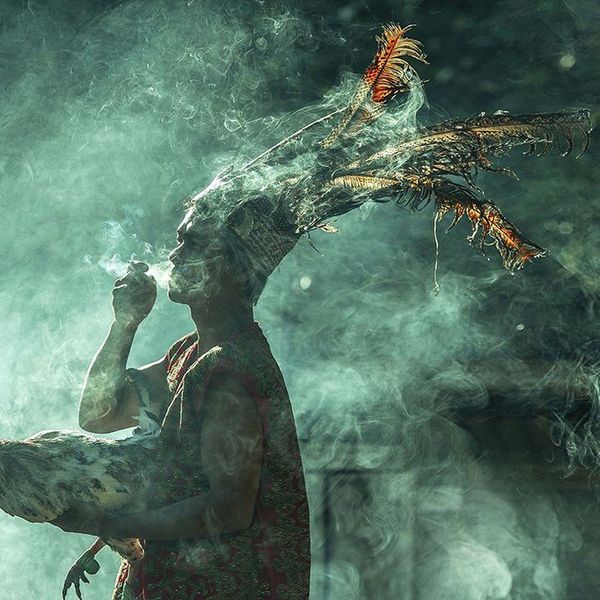Pre-Modern Ideologies
Now that the triangle is explained and context given to the three points, the different ideologies that persist in the world can be put inside the triangle. To reiterate, this is not meant to end any sort of political discussion. This is meant to frame the discussion. Any person can still debate the values and benefits of the different points of view, but this triangle serves as a starting point.
Let us begin with a form of society that is pre-historic. The organization of tribes in the times before the invention of industry and modern economics. This may seem difficult to fit into the triangle, and difficult to put into modern context in general. However, these organizational structures can still be put inside the triangle, because they all incorporate differing degrees of focus on these three values.
The attitude of tribes in the times before the modern world could be initially interpreted as communistic, but this is not necessarily the case. Many of these old tribes would still institute a hierarchical structure, which indicates a focus on the order aspect of the triangle. Though these tribes still live and survive together through mutual effort, they still had a focus on maintaining the good of the tribe at the expense of the less fortunate.
A good example of this mindset is the actions of some tribes during childbirth. The pregnant woman would venture out into the wilderness when she recognized that the time had come to give birth. After this was done, the mother would examine the child for defects. If the child had some sort of deformity, the mother would leave the newborn out in the wilderness to die. This is an example of sacrificing the equality of the tribe for the preservation of the tribe. They could ill-afford having a person with some kind of disability. This is an example of a limited individualist society, and a society that does not view every person to be of the same value. This is further demonstrated in the common hierarchy of tribes. They would often appoint a leader based on values of strength and wisdom. This is similar to the golden men that Plato discussed. A tribal leader that is viewed to be the strongest of the group and therefore fit to rule, is not that dissimilar to the concept of a philosopher king.
In summary, these tribes would be placed fairly close to order. However, they would be somewhat toward equality and freedom due to the collectivist mindset and some concepts of personal property.
Further down the historical line is feudalism. Feudalism would fall close to these tribes in terms of the focus on order. This is due to the very clear hierarchical structure imposed by the rulers. The people at the top of the food chain hold a static position as the most powerful, just as those at the bottom hold static position as the servants to the ruler. The ruler holds absolute sway over public policy, and is guaranteed payments from the people below him.
However, there is also a trend toward freedom in this society. There is a growing concept of personal property, and the chance for the people to better their lives through their own labor. A certain amount is considered the right of the ruler, but the peasants have no inherent obligation to the other peasants, and generally can thrive by themselves if they improve their financial situation. This would place the feudal organization slightly closer to the freedom point of the triangle.
An ideology that continues to persist into the modern world is the concept of a theocracy. This difficult to place into a specific position, and it is worth mentioning that societies under this particular organization may fall differently inside the triangle based on the religion of the society. That being said, the trend of most theocratic societies, as well as the basic concept of a theocracy, would place them near order on the triangle.
The idea behind a theocracy is to create a moral code that everyone must live by. The religious aspect commonly indicates an intrusive set of laws that are meant to police the behavior of the citizens of that society. Naturally, this can change from religion to religion. Religions themselves are ideologies, and therefore have different principles that they wish society to live by. However, the fact still remains that many of these religions wish to impose their moral ideology onto the people of that particular society. The common understanding of a theocratic government would place the society, tentatively, around feudalism.






















